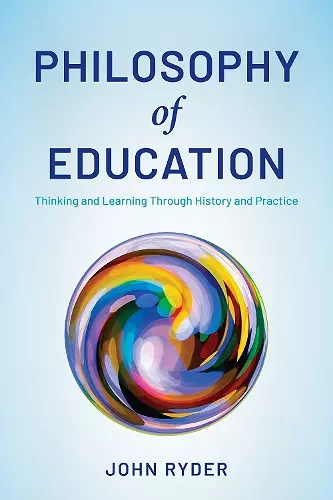Philosophy of Education
Thinking and Learning Through History and Practice
Format:Hardback
Publisher:Rowman & Littlefield
Published:23rd Sep '22
Should be back in stock very soon

Written for masters courses in which most students are already practicing teachers, this book is based on three structural principles.
- A grasp of the philosophy of education must deliver some familiarity with the high points of its history;
- The most general issues that a philosophy of education seeks to address concern the questions why, how, by or for whom, about what, where, and when education should be undertaken. The questions comprise the goals, methods, content, stakeholders, occasions, and locations of education. The philosophy of education is a normative enterprise that seeks to identify and justify general principles on the basis of which educational practitioners may answer such questions in their own policies and practices.
- A reliable approach to the philosophy of education has to be systematic. General educational principles are necessarily related to ideas about other matters to which individuals or whole societies subscribe. Specifically, they are related to ideas about reality generally, knowledge, human nature and experience, society, and the state. A systematic philosophy of education examines basic educational questions and principles in relation to these broader topics.
The book is divided into two parts. Part I is historically oriented, and it consists of four chapters that introduce the reader to four of the most influential figures in the history of philosophical thinking about education: Plato, Jean-Jacques Rousseau, John Dewey, and Paolo Freire. Each chapter deals with one of the figures, and more specifically, with one text of each author: Plato’s Republic, Rousseau’s Emile, Dewey’s Democracy and Education, and Freire’s Pedagogy of the Oppressed. Education is the focus of each of these books, and in each case its author explores the basic philosophical questions related to education in a systematic way, which is to say by relating the discussions of education to broader analyses of reality, knowledge, philosophical anthropology, and socio-political matters.
Each chapter guides the reader through the text, with an emphasis on the educational principles advanced and their relation to more general philosophical issues. There are three advantages for the reader having read these four chapters
- She will have a sense of the details of four of the most important texts in the history of Western philosophy of education;
- She will have a clearer idea of what it means to do a...
- Winner of Outstanding Academic Title 2023
ISBN: 9781538166611
Dimensions: 237mm x 158mm x 22mm
Weight: 549g
286 pages
Prebound edition